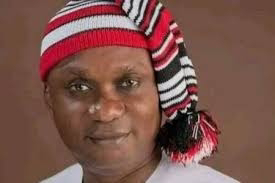Saturday, May 10, 2025
ARTICLE: Ethnicity Divide: Cancerous to the Nation Nigeria By Rt. Hon. Engr. Chinedum Enyinnaya Orji, FNSE
Nigeria, Africa’s most populous country and one of its most resource-rich, has for decades struggled with the twin challenges of unity and nationhood. Despite our diversity, or perhaps because of it, Nigeria has continued to grapple with deep ethnic divisions that have often undermined our progress and development. Ethnicity, in its negative manifestation, has become a device so cancerous that it threatens the very soul of our nation.
Ethnicity in itself is not inherently evil. In fact, our ethnic diversity should be a source of pride and strength. The multiplicity of languages, cultures, and traditions should offer Nigeria a rich tapestry from which to weave a powerful national identity. However, when ethnicity becomes a tool for exclusion, favoritism, marginalization, and political manipulation, it turns from a benign cultural identity into a malignant national crisis.
This cancerous form of ethnicity manifests in various ways: unequal distribution of resources, nepotism in political appointments, ethnic profiling, and even violence. Time and again, we've seen how ethnic bias in governance fosters resentment, breaks down trust in public institutions, and stokes disunity among citizens. The civil war of the 1960s, the perennial agitation for secession, and recurrent communal clashes are all symptoms of a deeper ethnic wound that Nigeria has failed to heal.
Our politics today is often less about competence and vision, and more about "where do you come from?" or "what religion do you practice?" This mindset has robbed Nigeria of great leaders whose only disqualification is their ethnicity. It has entrenched mediocrity and made the pursuit of national cohesion a difficult task.
As a nation, we must reject the weaponization of ethnicity. Leaders must rise above parochial interests and embrace the ideal of one Nigeria—where every citizen, regardless of tribe or tongue, is given equal opportunity to thrive. Our constitution guarantees equality, but in practice, we have failed to live up to this promise.
The time has come to reconstruct our national thinking. The Nigerian child in Sokoto should see his counterpart in Abia as a brother, not a stranger. We must reform our educational curricula to teach unity, empathy, and patriotism. We must encourage inter-ethnic dialogue and celebrate stories of unity, not division.
Nigeria can never reach her full potential while she remains divided along ethnic lines. Ethnicity, when misused, is a cancer that eats away at the core of nationhood. But just like cancer, it can be diagnosed, treated, and ultimately defeated—if we are willing to confront it with sincerity, political will, and a deep love for this country.
Let us rise, not as Hausa, Igbo, Yoruba, Ijaw, Tiv, or Fulani, but as Nigerians—one people with one destiny.
Rt. Hon. Engr. Chinedum Enyinnaya Orji, FNSE
Former Speaker, Abia State House of Assembly
National Unity Advocate
Subscribe to:
Post Comments (Atom)


No comments:
Post a Comment